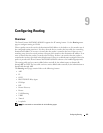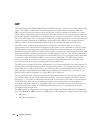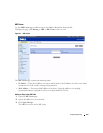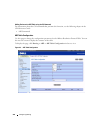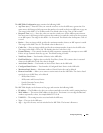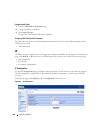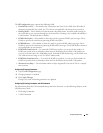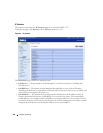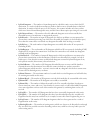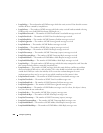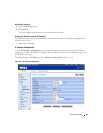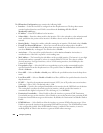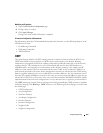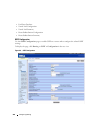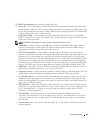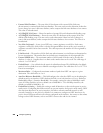
Configuring Routing 459
•
IpForwDatagrams
— The number of input datagrams for which this entity was not their final IP
destination, as a result of which an attempt was made to find a route to forward them to that final
destination. In entities which do not act as IP Gateways, this counter includes only those packets
which were Source-Routed through this entity, and the Source-Route option processing was successful.
•
IpInUnknownProtos
— The number of locally-addressed datagrams received successfully but
discarded because of an unknown or unsupported protocol.
•
IpInDiscards
— The number of input IP datagrams for which no problems were encountered to
prevent their continued processing, but which were discarded (for example, for lack of buffer space).
Note that this counter does not include any datagrams discarded while awaiting re-assembly.
•
IpInDelivers
— The total number of input datagrams successfully delivered to IP user-protocols
(including ICMP).
•
IpOutRequests
— The total number of IP datagrams which local IP user-protocols (including ICMP)
supplied to IP in requests for transmission. Note that this counter does not include any datagrams
counted in ipForwDatagrams.
•
IpOutDiscards
— The number of output IP datagrams for which no problem was encountered to
prevent their transmission to their destination, but which were discarded (for example, for lack of
buffer space). Note that this counter would include datagrams counted in ipForwDatagrams if any
such packets met this (discretionary) discard criterion.
•
IpOutNoRoutes
— The number of IP datagrams discarded because no route could be found to
transmit them to their destination. Note that this counter includes any packets counted in
ipForwDatagrams which meet this `no-route' criterion and any datagrams which a host cannot route
because all of its default gateways are down.
•
IpReasmTimeout
— The maximum number of seconds which received fragments are held while they
are awaiting reassembly at this entity.
•
IpReasmReqds
— The number of IP fragments received which needed to be reassembled at this entity.
•
IpReasmOKs
— The number of IP datagrams successfully re-assembled.
•
IpReasmFails
— The number of failures detected by the IP re-assembly algorithm (for whatever
reason: timed out, errors, and so on). Note that this is not necessarily a count of discarded IP fragments
since some algorithms can lose track of the number of fragments by combining them as they are
received.
•
IpFragOKs
— The number of IP datagrams that have been successfully fragmented at this entity.
•
IpFragFails
— The number of IP datagrams that have been discarded because they needed to be
fragmented at this entity but could not be, for example, because their Don't Fragment flag was set.
•
IpFragCreates
— The number of IP datagram fragments that have been generated as a result of
fragmentation at this entity.
•
IpRoutingDiscards
— The number of routing entries which were chosen to be discarded even though
they are valid. One possible reason for discarding such an entry could be to free-up buffer space for
other routing entries.



